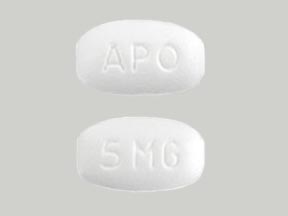
Allergy Relief Cetirizine Coupons & Savings Card – Discount Prices from $8.70
Brand for: Cetirizine
My prescription
Edit
5MG, Cetirizine (30 Tablets)
Select pharmacy

Walgreens
$8.70
COUPON PRICE
Albertsons
$12.61
COUPON PRICEAllergy Relief Cetirizine savings card
Show this card to your pharmacist
Walgreens
$8.70
BIN
ID
PCN
GRP
015995
LHKPY240273
GDC
DR33
Powered by
More prescriptions for hives
More prescriptions for hives
Price history for Allergy Relief Cetirizine (brand) & Cetirizine (generic)
30 Tablets, 5MG
Average retail price for Allergy Relief Cetirizine
Average retail price for Cetirizine
Average SaveHealth price for Cetirizine
Our price history data is based on aggregated prescription data collected from participating pharmacies in America. Our prescription data updates daily to reflect the latest price changes. If you notice a missing data point, it means there wasn't sufficient data available to generate a monetary value for that date.
Over the last 12 months, the average discount price of Allergy Relief Cetirizine is $26.70 using the SaveHealth savings card. That's an average savings of 21.45% on Allergy Relief Cetirizine with our discount card.
*Retail prices are based on pharmacy claims data, and may not be accurate when we don't have enough claims.
Allergy Relief Cetirizine (Cetirizine) dosage forms
Dosage Quantity Price from Per unit 5MG 30 Tablets $10.54 $0.35 5MG 100 Tablets $20.03 $0.20 10MG 1 Tablet $9.05 $9.05 10MG 5 Tablets $9.26 $1.85 10MG 6 Tablets $9.32 $1.55 10MG 7 Tablets $9.37 $1.34 10MG 10 Tablets $9.53 $0.95 10MG 14 Tablets $9.74 $0.70 10MG 15 Tablets $9.79 $0.65 10MG 20 Tablets $10.06 $0.50
| Dosage | Quantity | Price from | Per unit |
|---|---|---|---|
| 5MG | 30 Tablets | $10.54 | $0.35 |
| 5MG | 100 Tablets | $20.03 | $0.20 |
| 10MG | 1 Tablet | $9.05 | $9.05 |
| 10MG | 5 Tablets | $9.26 | $1.85 |
| 10MG | 6 Tablets | $9.32 | $1.55 |
| 10MG | 7 Tablets | $9.37 | $1.34 |
| 10MG | 10 Tablets | $9.53 | $0.95 |
| 10MG | 14 Tablets | $9.74 | $0.70 |
| 10MG | 15 Tablets | $9.79 | $0.65 |
| 10MG | 20 Tablets | $10.06 | $0.50 |
| 10MG | 28 Tablets | $10.48 | $0.37 |
| 10MG | 30 Tablets | $10.58 | $0.35 |
| 10MG | 45 Tablets | $11.38 | $0.25 |
| 10MG | 60 Tablets | $12.17 | $0.20 |
| 10MG | 90 Tablets | $20.97 | $0.23 |
| 10MG | 100 Tablets | $21.64 | $0.22 |
| 10MG | 300 Tablets | $33.84 | $0.11 |
| 10MG | 365 Tablets | $37.27 | $0.10 |
| 10MG | 500 Tablets | $44.40 | $0.09 |
| 10MG | 800 Tablets | $60.24 | $0.07 |
| 10MG | 1440 Tablets | $94.03 | $0.07 |
Is cetirizine good for any allergies?
Cetirizine is an antihistamine commonly used to relieve symptoms associated with allergic reactions, such as hay fever, allergic rhinitis, and urticaria (hives). It can help alleviate symptoms like sneezing, runny nose, itchy or watery eyes, and itching of the throat or nose. However, it is always advisable to consult with a healthcare professional to determine the most appropriate treatment for specific allergy symptoms.
Is cetirizine the same as Zyrtec?
Yes, cetirizine is the generic name for the brand name drug Zyrtec. They contain the same active ingredient and are used to treat allergy symptoms.
What should I avoid while taking cetirizine?
While taking cetirizine, one should avoid consuming alcohol, as it can increase the risk of side effects such as drowsiness. Additionally, it is advisable to avoid operating heavy machinery or driving until it is known how cetirizine affects the individual, as it can cause drowsiness in some people. Always consult with a healthcare provider for personalized advice.
Is there a difference between Zyrtec and generic cetirizine?
There is no difference in the active ingredient between Zyrtec and generic cetirizine; both contain cetirizine hydrochloride. The primary difference lies in branding and possibly inactive ingredients, which can vary between manufacturers. Both are used to treat allergy symptoms and should have the same therapeutic effect.
When should you not take cetirizine?
Cetirizine should not be taken by individuals who have a known allergy to cetirizine or any of its ingredients. It should also be used with caution in individuals with severe kidney impairment, and a healthcare provider should be consulted in such cases. Additionally, cetirizine may not be suitable for those who are pregnant or breastfeeding without medical advice. It is important to consult a healthcare professional before taking cetirizine if there are any concerns or pre-existing health conditions.
